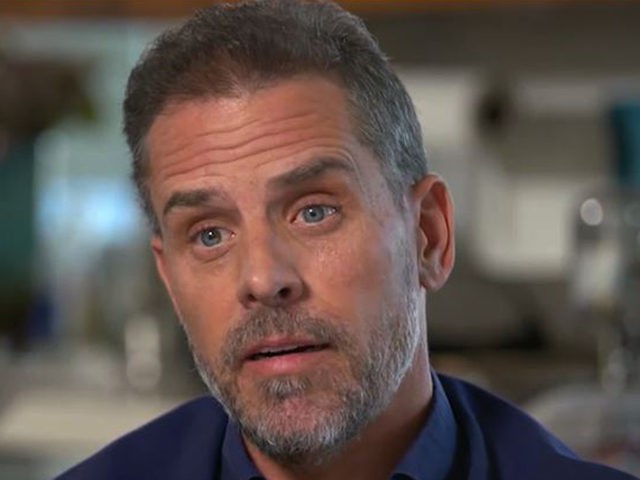Joe Biden’s decision to pressure Ukraine into firing its top prosecutor, who was investigating an oil and gas conglomerate that employed the former vice president’s son, came shortly after the company lobbied the Obama White House to end the probe.
A series of documents from the Obama-Biden administration released on Monday reveal that representatives for Burisma Holdings sought a meeting with the State Department in February 2016 to discuss allegations of corruption against the company.
At the time, Burisma and its founder, Mykola Zlochevsky, were under suspicion for money laundering and public corruption. The allegations stem from Zlochevsky’s tenure as Ukraine’s minister of ecology and natural resources in the early 2010s, where it is purported he used his position to approve oil and gas licenses for Burisma.
In order to get the meeting with the State Dept., Burisma’s representatives specifically invoked the former vice president’s youngest son, Hunter, who sat on the company’s board of directors. The documents, which were obtained through a Freedom of Information Act (FOIA) lawsuit by John Solomon, do not indicate if the meeting ever took place. Solomon has indicated that there are more records forthcoming, subject to an ongoing FOIA lawsuit.
Although the records can not confirm if an actual meeting took place, the timeline of events that transpired shortly afterwards were directly to Burisma’s benefit.
In March 2016, Biden issued an ultimatum to then-Ukrainian President Petro Poroshenko: either the government fire its top prosecutor, Viktor Shokin, or the U.S. would rescind upwards of $1 billion in aid.
According to Biden’s official recollection of the incident, he issued the ultimatum on behalf of then-President Barack Obama, who had lost faith in Shokin’s ability to root out corruption. Unofficially, though, it was well known that that Shokin was ramping up his investigation into both Burisma and Zlochvesky.
Shokin’s probe had progressed far enough that he was able to convince the Ukrainian courts in early 2016 to seize Zlochvesky’s remaining assets in the country. The oligarch only evaded arrest because he was already hiding abroad after having fled Ukraine in 2014 when a pro-western uprising toppled his allies in the country’s then-pro-Russian government.
Adding to the appearance of conflicting interests behind the former vice president’s decision to oust Shokin is that the prosecutor has claimed he was preparing to interview Hunter Biden about his Burisma tenure when he was fired.
The revelations come into the spotlight as questions mount as to how Hunter Biden was able to secure an appointment to Burisma’s board in the first place. As Peter Schweizer, senior contributor at Breitbart News, detailed in his book Secret Empires: How the American Political Class Hides Corruption and Enriches Family and Friends, Hunter Biden secured the position, which paid as much as $83,000 per month, despite no having background in energy or Ukraine.
Adding to the appearance of impropriety is the fact that Hunter Biden joined Burisma at a time the company was seen as actively courting western leaders to prevent further scrutiny of its business practices. The same month the younger’s Biden appointment was announced, the government of Great Britain froze accounts belonging to Burisma founder Mykola Zlochevsky under suspicion of money laundering. Zlochevsky, a former Ukrainian minister of natural resources, would later be accused of corruption for using his office to approve oil and gas licenses to Burisma.
A Ukrainian official with strong ties to Zlochevsky admitted in October the only reason that Hunter Biden secured the appointment was to “protect” the company from foreign scrutiny. The claim has credence given that at the time Joe Biden, as the sitting vice president, was tasked with leading the Obama administration’s policy towards Ukraine in response to Russia’s invasion of Crimea.
Hunter Biden, himself, admitted his father’s political influence was the likely reason for his appointment to Burisma’s board during a recent ABC News interview.
“I don’t know. I don’t know. Probably not, in retrospect,” the younger Biden said when asked if he would have been tapped for the lucrative job had his father not been the sitting vice president. He quickly added, though, that his family’s political prominence had always played a large role in his dealings. “But that’s—you know—I don’t think that there’s a lot of things that would have happened in my life if my last name wasn’t Biden.”

COMMENTS
Please let us know if you're having issues with commenting.